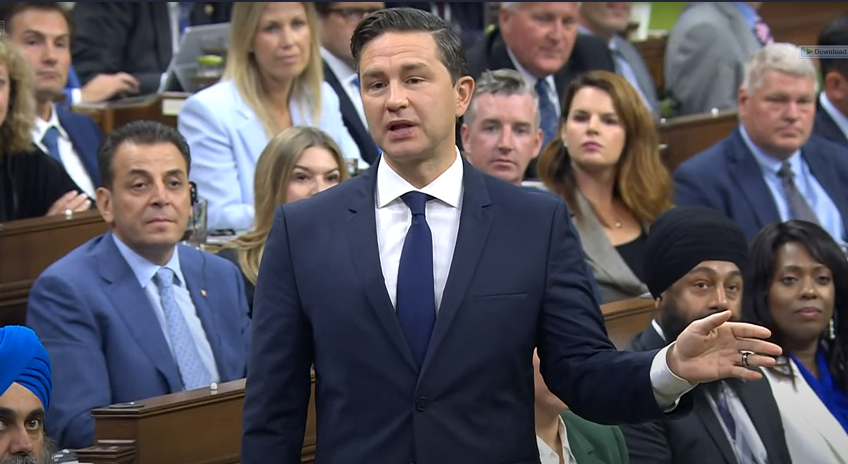Finance Minister Chrystia Freeland presented the federal government’s 2024 budget in the House of Commons, outlining the Liberal Party’s vision for economic recovery and national priorities. While the budget received support from many quarters, it also faced criticism from Conservative Party members.
Pierre Poilievre was quick to question the government’s approach to fiscal responsibility, pointing out what he sees as a pattern of unchecked spending leading to ballooning deficits. “This is the ninth deficitary budget since the prime minister promised that the books would balance themselves,” Poilievre noted, emphasizing the increasing costs of housing, food, and living expenses under the current government’s watch.
He criticized the government for doubling the cost of rent and mortgage payments and increasing the cost of food, arguing that these outcomes contradict the promises made by the Liberal Party. Poilievre also expressed concern over the $40 billion worth of inflationary deficit proposed in the budget, equating it to an additional burden of $2,400 for each Canadian family.
Freeland’s proposed changes to the capital gains tax drew particular scrutiny from Poilievre, who accused the government of targeting wealth creators and investors. He argued that the tax increases would deter investment and hinder economic growth, echoing broader Conservative concerns about the impact of higher taxes on Canada’s competitiveness and prosperity.
“Taxing capital gains is not an idea that supports fairness; it stifles innovation and investment,” Poilievre asserted, challenging the notion that taxing the wealthy more heavily would lead to greater societal benefit.
Poilievre also took aim at the government’s record of project management, specifically criticizing the handling of the Trans Mountain pipeline expansion. He highlighted the project’s skyrocketing costs, which he claimed had ballooned to $30 billion, far exceeding initial estimates.
“What would have happened if the government had just gotten out of the way?” Poilievre asked, suggesting that private sector involvement could have led to more efficient and cost-effective outcomes.
In his critique, Pierre Poilievre emphasized the need for common-sense approaches to economic management, advocating for lower taxes, reduced government intervention, and greater fiscal accountability. He characterized the Liberal government’s budget as wasteful and inflationary, calling for a shift in direction towards policies that prioritize economic growth, affordability, and responsible governance.
“As soon as the NDP takes away its support from this prime minister, we will have a carbon tax election where the people will be able to make that decision for themselves,” Poilievre concluded, signaling the Conservative Party’s readiness to challenge the Liberal agenda in the upcoming election.
As Canadians prepare for the next election, scheduled for October 20, 2025, the debate over economic policy, taxation, and government spending promises to be a central battleground.

